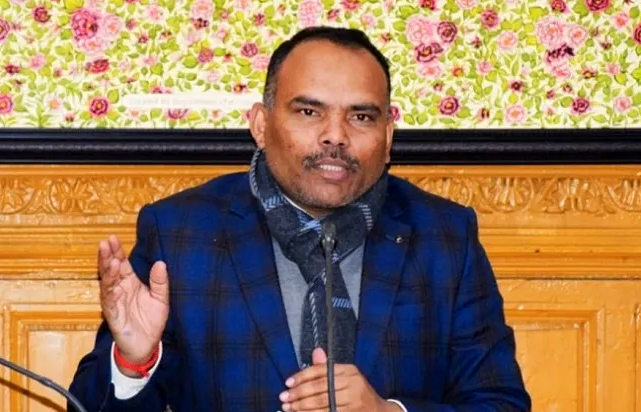- Electoral revision schedule notified for all ULBs
- *Final rolls to be published on Aug 25
Sanjeev Pargal
JAMMU, July 28: Chief Electoral Officer (CEO) PK Pole today formally set the process in motion for conduct of Urban Local Bodies (ULBs) elections in Jammu and Kashmir by issuing a notification to revise/update the Municipal Electoral Rolls for all bodies from August 1 while final rolls will be published on August 25.
Pole told the Excelsior that two separate notifications for revision/updating the electoral rolls for Jammu and Srinagar Municipal Corporations and 75 other bodies including Councils and Committees have been issued today.
 The CEO said the last elections to Municipal Corporations, Councils and Committees were held in 2018 and terms of these bodies will expire in November 2023. Therefore, it has been decided to revise/update the Municipal electoral rolls for the ULBs.
The CEO said the last elections to Municipal Corporations, Councils and Committees were held in 2018 and terms of these bodies will expire in November 2023. Therefore, it has been decided to revise/update the Municipal electoral rolls for the ULBs.
“The electoral rolls have to be revised in prescribed manner before the conduct of each general elections to the Corporations or for any Ward or for a by-elections to fill a casual vacancy in such Wards,” Pole said.
He said superintendence, direction and control of the preparation of electoral rolls, delimitation of Wards, reservation and allotment of seats by rotation for, and the conduct of all elections to the Corporations and Municipal Committees is vested in the CEO under J&K Municipal Corporations and Municipal Acts.
A couple of days back, State Election Commissioner BR Sharma had announced that Panchayat elections are likely to be held in October-November. In 2018, Municipal elections were held first followed by Panchayat polls from October-December.
As per the schedule issued by the CEO, draft electoral rolls will be published on August 1. Period for filing of claims and objections will be from August 1-11 while special camp at the Polling Stations will be organised on August 6 and 10.
Disposal of claims and objections will be done on August 16 while electoral rolls will be updated on August 21. Final electoral rolls will be published on August 25.
The CEO has notified Electoral Registration Officers (EROs) and Assistant EROs.
As per two separate orders issued by the CEO today, the place of hearing for claims and objections received shall be the headquarters of the ERO/AERO. Date for hearing for claims/objections shall be notified by the ERO within the period for filing claims and objections and in any case all such hearing shall be completed before August 16.
“The notice giving an abstract of the claims/objections received by the EROs shall be uploaded daily on website of the CEO and Deputy Commissioners of the concerned districts. The ERO shall pass an order on claims/objections latest by August 16 and every such order shall be put on notice board of the ERO immediately on such issuance,” the CEO’s order read.
It said any person aggrieved by the order passed by the ERO shall apply for revision before the ERO within prescribed statutory period of five days.
The order asked the Deputy Commissioners to organize special camps at the polling station levels.
Sources pointed out that term of Srinagar Municipal Corporation (SMC) will be complete on November 5 and that of Jammu Municipal Corporation (JMC) on November 14 while terms of rest all Municipal bodies including Councils and Committees in the UT will end between October-November.
Five-year term of the Panchayats will end on January 9, 2024.
Term of Urban Local Bodies is counted from the day of their first meeting while that of Panchayats is taken into account the day they were constituted.
“In such a scenario, elections to Urban Local Bodies are required to be completed before the end of October and that of Panchayats in middle of December this year,” sources said.
Term of the Block Development Councils (BDCs) will end in October 2024 while the District Development Councils (DDCs) will complete their tenure in January 2026.
“Generally elections to all three tiers of Panchayati Raj System are held simultaneously. However, since elections to DDCs were held for first time in Jammu and Kashmir, there was gap of two years in their and Panchayats term while there was an year’s difference in Panchayats and BDC term,” sources said.


